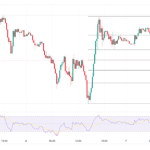
Investing.com — In a note to clients Thursday, Citi analysts advised a cautious approach to oil and gold following Donald Trump’s election victory and a Republican “red sweep” of Congress.
The recent shifts in global markets, with a 1-5% drop in oil, gold, copper, and emerging market equities, reflect concerns over potential tariff-driven trade tensions with China and reduced global demand, according to the bank.
For oil, Citi advises investors to sell into any short-term strength that may arise from Middle East geopolitical risks.
The bank sees oil’s long-term outlook as bearish, expecting Brent to average $60 per barrel in 2025—a forecast unchanged since early 2024.
Citi explains that Trump’s focus on reducing energy costs, easing regulations, and ramping up domestic oil supply could contribute to this pressure on oil prices.
Further, Citi notes that potential sanctions on Iran may have limited impact, as Trump’s policies are not expected to significantly reduce Iran’s oil exports.
As Citi puts it, the new administration’s policies are “likely to be marginally net bearish for oil.”
In contrast, Citi recommends a “buy-the-dip” approach to gold. Although gold has seen near-term weakness due to a rally in U.S. equities and machine-based selling, the bank expects gold prices to rise over the next six months.
Citi maintains its bullish stance, targeting $3,000 per ounce, driven by factors like the easing U.S. labor market, high interest rates, and global de-dollarization.
However, they caution that gold will likely trade weakly in the very near term.
Nevertheless, Citi sees an opportunity in “buying dips below $2,700/oz,” particularly as structural factors underpin a long-term bull market.
The outlook for other commodities remains mixed. Base metals are viewed with “broadly neutral” sentiment due to the uncertain scale and timing of tariffs on China.
Meanwhile, heightened trade tensions are seen as bearish for U.S. row crop prices, particularly soybeans and corn, which could lead to more favorable conditions for Brazil.







